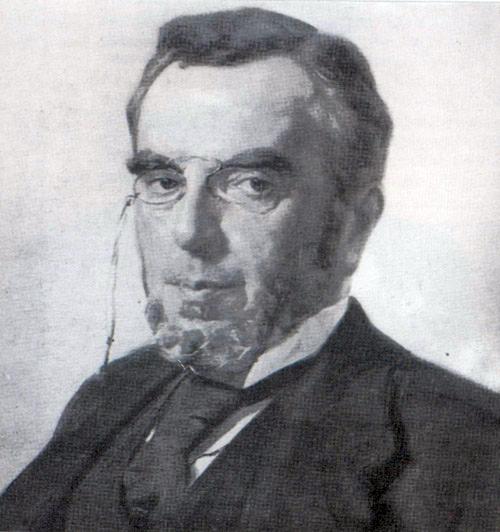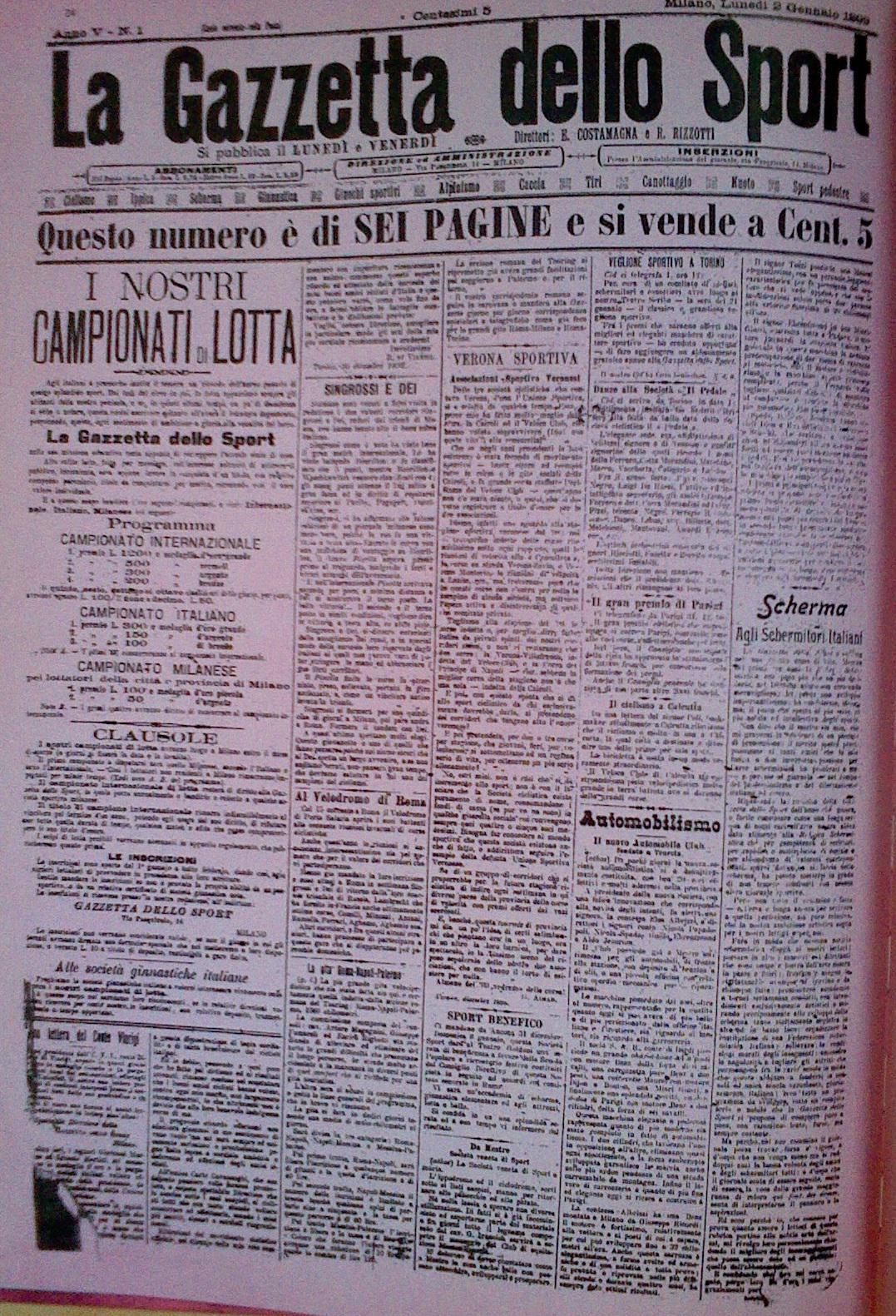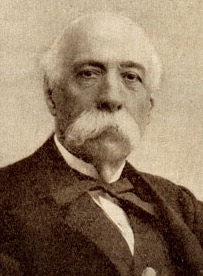|
1896 In Italy
Events from the year 1896 in Italy. Kingdom of Italy *Monarch – Umberto I (1878–1900) *Prime Minister – *# Francesco Crispi (1893–1896) *# Antonio di Rudinì (1896–1898) Events In 1896, the Banco Ambrosiano was founded in Milan by Giuseppe Tovini, a Catholic advocate, and was named after Saint Ambrose, the 4th century archbishop of the city. Tovini's purpose was to create a Catholic bank as a counterbalance to Italy's "lay" banks, and its goals were "serving moral organisations, pious works, and religious bodies set up for charitable aims." The bank came to be known as the "priests' bank." February * February 1 – The world première performance of ''La bohème'' by Giacomo Puccini took place in Turin at the Teatro Regio and was conducted by the young Arturo Toscanini. March * March – The first Italian cinema screening by the Lumière brothers occurred in Turin. * March 1 – The Battle of Adwa between Ethiopia and Italy near the town of Adwa, Ethiopia, in ... [...More Info...] [...Related Items...] OR: [Wikipedia] [Google] [Baidu] |
Umberto I Of Italy
Umberto I ( it, Umberto Rainerio Carlo Emanuele Giovanni Maria Ferdinando Eugenio di Savoia; 14 March 1844 – 29 July 1900) was King of Italy from 9 January 1878 until his assassination on 29 July 1900. Umberto's reign saw Italy attempt colonial expansion into the Horn of Africa, successfully gaining Eritrea and Somalia despite being defeated by Abyssinia at the Battle of Adwa in 1896. In 1882, he approved the Triple Alliance with the German Empire and Austria-Hungary. He was deeply loathed in leftist circles for his conservatism and support of the Bava Beccaris massacre in Milan. He was especially hated by anarchists, who attempted to assassinate him during the first year of his reign. He was killed by another anarchist, Gaetano Bresci, two years after the Bava Beccaris massacre. Youth The son of Victor Emmanuel II and Archduchess Adelaide of Austria, Umberto was born in Turin, which was then capital of The Kingdom of Piedmont-Sardinia, on 14 March 1844, his father's 24 ... [...More Info...] [...Related Items...] OR: [Wikipedia] [Google] [Baidu] |
Kingdom Of Italy (1861–1946)
The Kingdom of Italy ( it, Regno d'Italia) was a state that existed from 1861, when Victor Emmanuel II of Kingdom of Sardinia, Sardinia was proclamation of the Kingdom of Italy, proclaimed King of Italy, until 1946, when civil discontent led to an 1946 Italian institutional referendum, institutional referendum to abandon the monarchy and form the modern Italy, Italian Republic. The state resulted from a decades-long process, the ''Italian unification, Risorgimento'', of consolidating the different states of the Italian Peninsula into a single state. That process was influenced by the House of Savoy, Savoy-led Kingdom of Sardinia, which can be considered Italy's legal Succession of states, predecessor state. Italy Third Italian War of Independence, declared war on Austrian Empire, Austria in alliance with Kingdom of Prussia, Prussia in 1866 and received the region of Veneto following their victory. Italian troops Capture of Rome, entered Rome in 1870, ending Papal States, more tha ... [...More Info...] [...Related Items...] OR: [Wikipedia] [Google] [Baidu] |
Athens
Athens ( ; el, Αθήνα, Athína ; grc, Ἀθῆναι, Athênai (pl.) ) is both the capital and largest city of Greece. With a population close to four million, it is also the seventh largest city in the European Union. Athens dominates and is the capital of the Attica region and is one of the world's oldest cities, with its recorded history spanning over 3,400 years and its earliest human presence beginning somewhere between the 11th and 7th millennia BC. Classical Athens was a powerful city-state. It was a centre for the arts, learning and philosophy, and the home of Plato's Academy and Aristotle's Lyceum. It is widely referred to as the cradle of Western civilization and the birthplace of democracy, largely because of its cultural and political influence on the European continent—particularly Ancient Rome. In modern times, Athens is a large cosmopolitan metropolis and central to economic, financial, industrial, maritime, political and cultural life in Gre ... [...More Info...] [...Related Items...] OR: [Wikipedia] [Google] [Baidu] |
1896 Summer Olympics
The 1896 Summer Olympics ( el, Θερινοί Ολυμπιακοί Αγώνες 1896, Therinoí Olympiakoí Agónes 1896), officially known as the Games of the I Olympiad ( el, Αγώνες της 1ης Ολυμπιάδας, Agónes tis 1is Olympiádas) and commonly known as Athens 1896 ( el, Αθήνα 1896), was the first international Olympic Games held in modern history. Organised by the International Olympic Committee (IOC), which had been created by French aristocrat Pierre de Coubertin, it was held in Athens, Greece, from 6 to 15 April 1896. Fourteen nations (according to the IOC, though the number is subject to interpretation) and 241 athletes (all males; this number is also disputed) took part in the games. Participants were all European, or living in Europe, with the exception of the United States at the 1896 Summer Olympics, United States team. Over 65% of the competing athletes were Greek. Winners were given a silver medal, while runners-up received a copper medal. ... [...More Info...] [...Related Items...] OR: [Wikipedia] [Google] [Baidu] |
La Gazzetta Dello Sport
''La Gazzetta dello Sport'' (; "The Sports Gazette") is an Italian daily newspaper dedicated to coverage of various sports. Founded in 1896, it is the most widely read daily newspaper of any kind in Italy (in 2018). History and profile ''La Gazzetta dello Sport'' was founded by Eliso Rivera and Eugenio Camillo Costamagna. The first issue was published on 3 April 1896, on time to cover the first modern Olympic Games held in Athens. The paper is based in Milan. Its role extends beyond news reporting and features, to direct involvement in major events, including (since 1909) the organization of the Giro d'Italia (Tour of Italy) road bicycle racing, road cycling race stage, stage race. ''La Gazzetta dello Sport'' is part of the RCS MediaGroup since 1976. The paper was published in broadsheet format until 2008 when its format was switched to tabloid (newspaper format), tabloid. The newspaper, published on pink paper, sells over 400,000 copies daily (more on Mondays when readers wa ... [...More Info...] [...Related Items...] OR: [Wikipedia] [Google] [Baidu] |
Bernardino Verro
Bernardino Verro (; July 3, 1866 – November 3, 1915) was a Sicilian syndicalist and politician. He was involved in the Fasci Siciliani (Sicilian Leagues) a popular movement of democratic and socialist inspiration in 1891-1894, and became the first socialist mayor of Corleone in 1914. He was killed by the Mafia. Fasci Siciliani Verro was involved in the foundation of the ''Fascio dei lavoratori'' of Corleone on September 8, 1892. At the age of 26, Verro became its president. "Our Fascio has about six thousand members," he told the journalist Adolfo Rossi, in an interview for ''La Tribuna'' from Rome in the autumn of 1893. "Our women have understood the advantages of union among the poor, and now teach their children socialism."Verro, una vita contro l ... [...More Info...] [...Related Items...] OR: [Wikipedia] [Google] [Baidu] |
Nicola Barbato
Nicola Barbato (Piana dei Greci, October 5, 1856 – Milan, May 23, 1923) was a Sicilian medical doctor, socialist and politician. He was one of the national leaders of the Fasci Siciliani (Sicilian Leagues) a popular movement of democratic and socialist inspiration in 1891-1894, and perhaps might have been the ablest among them, according to the Marxist historian Eric Hobsbawm.Hobsbawm, Primitive rebels', pp. 103-04 Early life Born in Piana dei Greci (now Piana degli Albanesi), he graduated in medicine at the University of Palermo. He joined the socialist movement around 1878 and in the then prevailing positivist climate he devoted himself to study psychiatry. His work on the psychology of paranoia in the journal of the mental hospital of Palermo in 1890, was judged positively by Cesare Lombroso and Enrico Morselli. he rejected the Albanian cause, which "was favoured by the moderates and clerics".Fracchia, Joseph (2010). ''"Hora": Social Conflicts and Collective Memories in P ... [...More Info...] [...Related Items...] OR: [Wikipedia] [Google] [Baidu] |
Rosario Garibaldi Bosco
Rosario Garibaldi Bosco (Palermo, July 28, 1866 – Turin, December 2, 1936) was an Italian Republican-inspired socialist, politician and writer from Sicily. He was one of the leaders of the ''Fasci Siciliani'' (Sicilian Leagues), a popular movement of democratic and socialist inspiration in 1891-1894. Early life Born in Palermo, the son of Nicola and Teresa Patorno, he graduated in accountancy in 1886. He married Concetta Seminara and became a political activist in radical and socialist circles inspired by Napoleone Colajanni, known as the father of Sicilian socialism.Bosco, Rosario Garibaldi Dizionario Biografico degli Italiani - Volume 13 (1971) [...More Info...] [...Related Items...] OR: [Wikipedia] [Google] [Baidu] |
Fasci Siciliani
The Fasci Siciliani , short for Fasci Siciliani dei Lavoratori (Sicilian Workers Leagues), were a popular movement of democratic and socialist inspiration, which arose in Sicily in the years between 1889 and 1894. The Fasci gained the support of the poorest and most exploited classes of the island by channeling their frustration and discontent into a coherent programme based on the establishment of new rights. Consisting of a jumble of traditionalist sentiment, religiosity, and socialist consciousness, the movement reached its apex in the summer of 1893, when new conditions were presented to the landowners and mine owners of Sicily concerning the renewal of sharecropping and rental contracts. Upon the rejection of these conditions, there was an outburst of strikes that rapidly spread throughout the island, and was marked by violent social conflict, almost rising to the point of insurrection. The leaders of the movement were not able to keep the situation from getting out of con ... [...More Info...] [...Related Items...] OR: [Wikipedia] [Google] [Baidu] |
Cesare Ricotti-Magnani
Cesare Francesco Ricotti Magnani (June 30, 1822 - August 4, 1917) was an Italian general who served as Minister of War of the Kingdom of Italy. Biography He was born at Borgolavezzaro, near Novara. As artillery lieutenant, he distinguished himself and was wounded at the Siege of Peschiera del Garda in 1848, and in 1852 gained further distinction by his efforts to prevent the explosion of a burning powder magazine. After serving from 1856 to 1859. as Director of the Artillery School, he became General of Division in 1864, commanding the 5th Division at the Battle of San Martino. In the war of 1866 he stormed Borgoforte, to open a passage for Cialdini's army. Upon the death of General Govone in 1872 he was appointed Minister of War, and after the occupation of Rome bent all his efforts to army reform, in accordance with the lessons of the Franco-German War. He shortened the period of military service, extended conscription to all able-bodied men, created a permanent army, a mobil ... [...More Info...] [...Related Items...] OR: [Wikipedia] [Google] [Baidu] |
Richard K
Richard is a male given name. It originates, via Old French, from Old Frankish and is a compound of the words descending from Proto-Germanic ''*rīk-'' 'ruler, leader, king' and ''*hardu-'' 'strong, brave, hardy', and it therefore means 'strong in rule'. Nicknames include "Richie", "Dick", "Dickon", " Dickie", "Rich", "Rick", "Rico", "Ricky", and more. Richard is a common English, German and French male name. It's also used in many more languages, particularly Germanic, such as Norwegian, Danish, Swedish, Icelandic, and Dutch, as well as other languages including Irish, Scottish, Welsh and Finnish. Richard is cognate with variants of the name in other European languages, such as the Swedish "Rickard", the Catalan "Ricard" and the Italian "Riccardo", among others (see comprehensive variant list below). People named Richard Multiple people with the same name * Richard Andersen (other) * Richard Anderson (other) * Richard Cartwright (other) * Ri ... [...More Info...] [...Related Items...] OR: [Wikipedia] [Google] [Baidu] |





